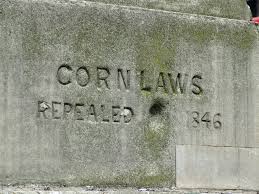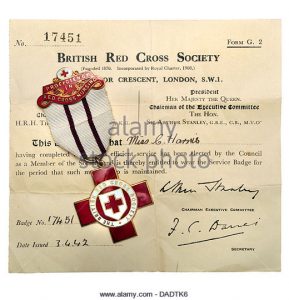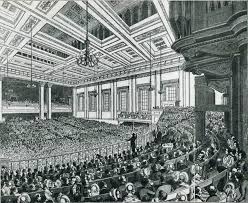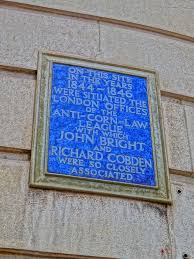Corn Laws during Victorian England: Corn Laws first came into existence in England in the 12th century to ration the import and export of food grains.
What Were the Corn Laws?
The law came into publicity in the 18th century when there were wars to be fought and there was an extreme shortage of food. The law was repealed in 1846 after most of the wars were fought.

Corn here means all the food grains and not only corn. The Corn Laws impacted the price of the food grains and were very expensive. By keeping the prices at a high level, the importers from outside the country would think twice before buying the cereal.
Corn Laws During Victorian England
The British Government wanted to be this way at least until the end of the war with Napoleon. The British Isles had formed blockades against French empire in hopes of isolating it.
The initial Corn Laws stated that there would be no import of corn from outside until the domestic corn reach 80 shillings per quarter. Hence farming gained popularity and the farmers received numerous benefits.
Disadvantages of the Corn Laws
However, there were repercussions of the Law. The middle class of the British society was at a disadvantage during this time. This was because they had to spend most of their income on food grains, especially corn whose price was exorbitantly high.

Since they spent so much on the food itself, they could not afford to buy anything else. Due to this, the manufacturing industry suffered since there was no one to buy their products and there were stringent laws for exporting goods from Britain.
Amendments to the Corn Law
There were changes made to the laws. The first one was during the Duke of Wellington’s in 1828. This alteration suggested that instead of having a fixed price of corn, the price was now connected to a sliding scale.

This allowed an import of grains when the cost of the corn was 73 shillings per quarter. By doing this, the cost in the country also dropped. However, there was no major improvement for the urban middle class which was bearing the brunt of the Laws.
Anti-Corn Law League
As a protest against the Corn Laws, a group of men named The Reformers and fought for the repeal of many laws and the Corn Laws was one of the most important ones among them.
The reformists who fight against the Corn Laws were called the Anti-Corn Law League, also known as the ACLL.

The league was led by Richard Cobden along with another founding member, John Bright fought for the overturning of the Corn Laws. John Bright, during his speeches always spoke for the manufacturers and the worker of the mills.
Repeal of The Corn Laws Effects
The League began in 1836 as the Anti-Corn Law Association. and then changed the ‘association’ into ‘league’. The members of this association belonged to the middle class since this section of the society was most affected.

By putting the government under a lot of pressure, the League successfully got Sir Robert Peel, who was heading the government then to repeal the Corn Laws.
More Info On- Frederick Robinson, Depiction of women in Victorian literature, Famous Laws in the Victorian Era, Victorian Era Depression reasons